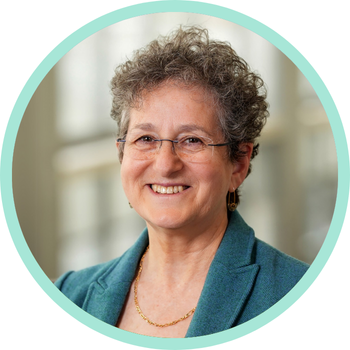Pain and DM2
A father and son living with myotonic dystrophy type 2 describe the unique pain they experience with this disease.
A father and son living with myotonic dystrophy type 2 describe the unique pain they experience with this disease.
This session delves into the cognitive challenges often faced by individuals with myotonic dystrophy type 2 (DM2), focusing on issues such as memory loss and executive function difficulties. Learn about the latest research on DM2’s cognitive impact and practical techniques to help manage these symptoms in daily life.

Presenter:
Thank you to our 2025 MDF Conference Sponsors for helping make this event possible:
This session addresses pain commonly experienced by people with myotonic dystrophy type 2 (DM2). Learn about both pharmacological and non-pharmacological pain management options, with a focus on physical therapy, occupational therapy, and lifestyle modifications, as well as pain relief medications.


Presenters:
Thank you to our 2025 MDF Conference Sponsors for helping make this event possible:
This session provides an essential understanding of Myotonic Dystrophy Type 2 (DM2), making it ideal for newly diagnosed individuals and those seeking to refresh their knowledge. Learn about the causes and genetics behind DM2, how the condition affects different systems of the body over time, and strategies for self-managing symptoms and building a strong clinical care team.

Presenter:
Thank you to our 2025 MDF Conference Sponsors for helping make this event possible:
This session explores the importance of genetic testing and counseling for individuals and families affected by myotonic dystrophy type 2 (DM2). Learn about the testing process, the role of genetic counselors, the importance of testing for registries and natural history studies, and planning for future generations.

Presenter:
Thank you to our 2025 MDF Conference Sponsors for helping make this event possible:
Presented on September 9th, 2023.
Araya Puwanant, MD, MS
Wake Forest University School of Medicine, Winston Salem, North Carolina, United States
Myotonic dystrophy type 2 (DM2), an autosomal dominant muscular dystrophy, is characterized by late-onset progressive proximal muscle weakness, myotonia, and multisystem features. DM2 results from a CCTG repeat expansion in the cellular nucleic acid binding protein (CNBP) gene, where the RNA gain-of-function is considered the primary mechanism that leads to myopathy. Although muscle structure measures from magnetic resonance imaging (MRI) have been used to assess disease severity in other muscular dystrophies, relatively little is known about how these measures are affected in DM2. While major progress has been made in drug development in myotonic dystrophy type 1 (DM1), identifying sensitive biomarkers of disease severity is essential to inform future clinical trial design in DM2. This presentation will review various imaging modalities employed in studies of DM2, from muscle ultrasound and DXA regional body composition to advanced MRI. We will discuss the strengths and limitations of each imaging technique in capturing abnormalities of muscle structure and function. The talk will focus on the latest research findings on muscle MRI in patients with DM2 compared to the control and DM1 groups, how these findings correlate with clinical endpoints, and whether MRI measures could serve as sensitive biomarkers of disease progression in DM2. Finally, we will discuss our pilot data from the DM2 brain study and the role of white matter abnormalities facilitating motor dysfunction, which is already compromised by dystrophic muscle pathology in DM2.
Click here to learn more about the 2023 MDF Annual Conference.
Presented on September 9th, 2023.
Johanna Hamel, MD
University of Rochester Medical Center, Rochester, New York, United States
Authors: Johanna Hamel, Katy Eichinger, Jeanne Dekdebrun, James Hilbert, Chad Heatwole, Richard Moxley, Michael McDermott, Charles Thornton
Myotonic dystrophy type 2 (DM2) causes progressive muscle weakness, myotonia, variable muscle pain, cardiac conduction block, cataracts, and GI dysmotility. Here we utilize the National Registry and a longitudinal prospective study to characterize disease burden and progression in DM2. The National Registry provides up to 20 years of patient-reported follow-up on important disease milestones, such as the use of assistive devices, non-invasive ventilation, or implantable cardiac devices. The natural history study spans 3 years and provides comprehensive and quantified information on strength and function in people with DM2. To date, 39 participants with DM2 enrolled. Preliminary data on strength, function, and effects on the transcriptome will be presented.
Click here to learn more about the 2023 MDF Annual Conference.
Presented on September 9th, 2023.
Irene Sonu, MD
Stanford University
This session explores the ways in which DM2 affects the GI system, treatment and management strategies aimed at alleviating GI issues, and improving quality of life.
Click here to learn more about the 2023 MDF Annual Conference.
Presented on September 8th, 2023.
John Day, MD, PhD
Stanford University
This session will cover sleepiness and other sleep disturbance considerations for both DM1 and DM2. Learn from a leading expert about sleepiness, and other sleep disturbances related to DM1 and DM2, best practices for care, monitoring, and self-management. Learn also about the latest research and how you can get involved!
Click here to learn more about the 2023 MDF Annual Conference.
Presented on September 9th, 2023.
Pradeep P.A. Mammen, MD, FACC, FAHA, FHFSA
University of Kansas Medical Center
Learn from a leading expert about the effect of Myotonic Dystrophy Type 2 (DM2) on the heart.
Click here to learn more about the 2023 MDF Annual Conference.